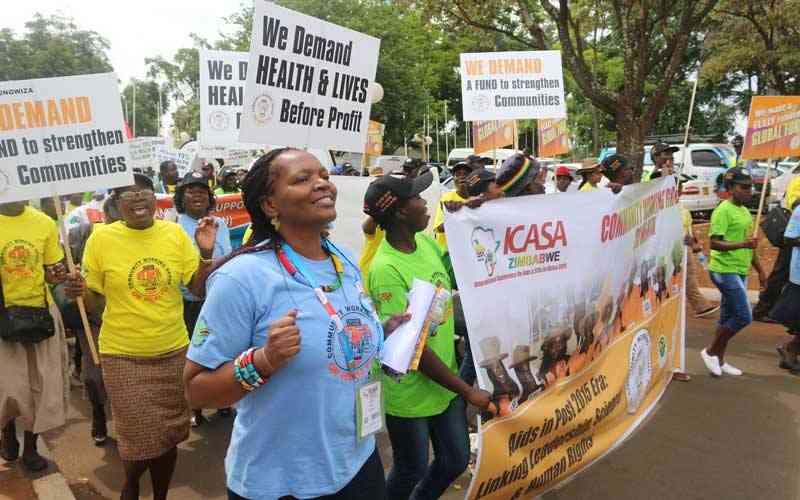
The conference held early last month was under the theme “Elimination of New HIV Infections in Children and Keeping Mothers Alive.” Owen Mugurungi, the director of HIV and Aids in the Ministry of Health and Child Welfare said the fact that the conference was officially opened by President Robert Mugabe showed government’s commitment to fighting the epidemic.
He said the challenge was now to get everyone involved in prevention campaigns. Mugurungi said men’s contribution was still lacking especially in the Prevention of Mother to Child Transmission (PMCT) programmes. “The president’s attendance showed that it is everyone’s responsibility to eliminate new infections,” he said.
“As the president said, most men are ignorant when it comes to issues to do with HIV and this at times results in them lagging behind in some of the programmes.”
For Zimbabwe to effectively respond to the Aids epidemic, it has to strengthen its health delivery system and ensure that everyone has access to facilities, Mugurungi said.
“Community mobilisation is very vital, there is need to continue encouraging people to get tested as well as to continue to educate them about preventive measures”, he said.
PMCT and paediatric HIV care and treatment coordinator in the Ministry of Health and Child Welfare, Angela Mushavi said government had a responsibility to ensure that men have a buy into prevention programmes.
“As ministry we need to find ways in which we can liase with men so that they can accompany their wives to health institution as well as to be involved in PMTC programmes,” she said.
Mushavi said the Aids conference was a success as it was well-attended by people from all walks of life.“We believe information on PMTC will spread throughout the country as the conference was attended by many people across the country and hopefully by 2015 we will not have new cases of HIV and no child will be born with the virus,” she said.
- Chamisa under fire over US$120K donation
- Mavhunga puts DeMbare into Chibuku quarterfinals
- Pension funds bet on Cabora Bassa oilfields
- Councils defy govt fire tender directive
Keep Reading
The first conference was held in 2004 and another one scheduled for 2009 was deferred because of lack of funds.
Agnes Mahomva, the country director of the Elizabeth Glazer Foundation who were some of the major sponsors of the conference said they hoped the event would go a long way in the fight to eliminate new infections in children.
“The participation from all over the country was very high at the conference, therefore we believe the word on the elimination will spread,” she said.“This we hope will enable mobilisation at the communities on preventing mother to child transmission of HIV and also ensuring that those already infected are assisted to access medication.”
Mahomva said the conference also highlighted the need for partnerships in programmes meant to eliminate new infections in children. “Strong and well-coordinated partnerships would help with resource mobilisation that supports one national programme”, she said.
She said to achieve the goal of eliminating new HIV infections and keeping mothers alive, there was need to implement three PMTCT strategies. “The three strategies include, preventing HIV infections in young adults (primary prevention), preventing unintended pregnancies that is family planning and providing treatment and appropriate ARVs for prevention of mother to child transmission for those who are HIV-positive and have made choices to have babies,” Mahomva said.











